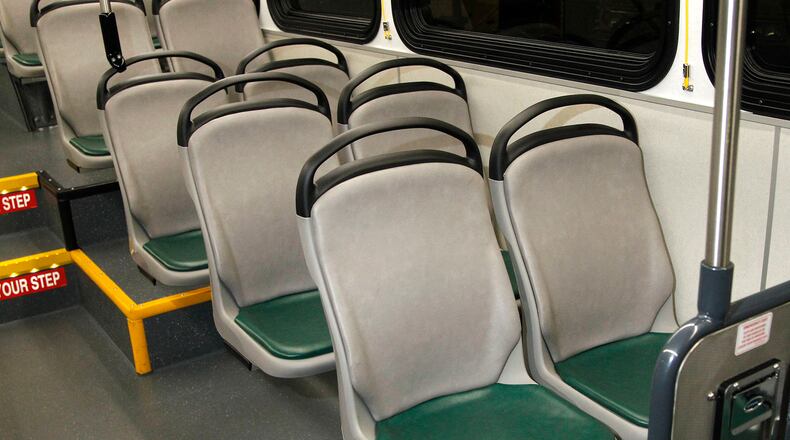These are the stories of RTA riders, collected by the newsroom and edited for brevity and clarity.
Patrick Schmalstig, Dayton, 24-year-old student
“I have been diagnosed with a seizure disorder since I was 14 and have been ordered by my doctor not to drive because of it … Without the fixed route buses, I will have to cease my attendance at Wright State University. There is no way I’ll be able to get there by bicycle, and I do not have anyone I can contact who can reliably get me to campus every weekday.”
LATEST: Union negotiators arrive in Dayton as lawmakers urge RTA contract
Nicolea Wise, Dayton, works in Huber Heights
“I have no vehicle and I don’t drive at all. The strike would greatly affect my income because I work in Huber Heights yet I live in North Dayton. The strike would only increase the crime rate because nobody can get to work to provide for their families, which makes me very uneasy.”
Amanda Thurston, Dayton, third-shift worker
“The Dayton RTA strike will definitely impact me. I (have) a very fixed budget and I have a high schooler who rides the bus daily … This will also cause many of my coworkers to lose their jobs as they will no longer have transportation and thus increase the workload on people like me.”
DETAILS: DPS, Sinclair weigh in on possible Dayton RTA strike
Dennis Scott, Dayton, works in Huber Heights
“I ride the bus to work five days a week. I catch the bus at 5:30 a.m. and then walk three miles from the nearest bus stop to where I work in Huber Heights. My wife and I only have one vehicle, and my 89-year-old mother-in-law lives with us, so my taking our vehicle to work is not an option. If a strike shuts down the bus lines, my wife would have to get up at 6:00 a.m. and drive me to work and then drive home and go back into our house by herself.”
Michele McGhee, Dayton, with a disabled grandson
“I’ve been riding RTA for over 40 years. My grandson who is totally disabled uses Project Mobility for all his doctor’s appointments and to and from his day rehab program five days a week. We have no other means of transportation to Children’s hospital.”
Brittany Nocar, Dayton, Sinclair student
“While Uber and Lyft are options, I can’t rely on these. I only make so much a month, and I need what money I do make to pay bills … If the buses don’t run, I won’t be able to get to work. If I can’t work, I won’t have the money for rent. I’ve been toeing the line of homelessness for a long while because of financial distress. If this strike happens, it’s very likely I will become homeless.”
Who will suffer? 5 groups brace for Dayton RTA strike
Anthony Collins, Dayton, worker
I’ve lived all over the country from Los Angeles and Las Vegas to Chicago, and we have a superior transit service … I’ve not missed a scheduled day of work in 4 years, and this is a very scary deal. I don’t make enough to take an alternative form of transportation, so if RTA strikes, I may very well lose a job that I’ve never even missed a day of work from.”
Read: RTA strike threatens disabled persons, hundreds of factory workers
Angel Fuqua, Dayton, worker and mother
“I have to take bus 1 to Beavercreek to be at work at 8 a.m. My daughter has to be at school here in Dayton at 8:45 a.m. The RTA is my only form of transportation … There are more downfalls than what the drivers care to think about, and as we know this affects many important factors in people’s everyday lives. I wish I did have their salary.”
Kodie Lynch, Dayton
“Please, my whole family depends on your services. We need you.”
About the Author
